Ricochet is the best place on the internet to discuss the issues of the day, either through commenting on posts or writing your own for our active and dynamic community in a fully moderated environment. In addition, the Ricochet Audio Network offers over 50 original podcasts with new episodes released every day.
 The Czechoslovak Underground Church (II)
The Czechoslovak Underground Church (II)
I’m back in Prague and am finally getting around to fulfilling my promise to keep writing about religion in the Czech lands under communism. In my first post, I mentioned the extreme repression the Catholic church suffered under communism in the former Czechoslovakia and the ways the church and its clerics sought to maintain a vibrant faith community for lay people. Many formerly “official” priests risked imprisonment by participating in religious education and similar activities in private homes. Many had served terms in the labor camps adjacent to uranium mines in the 1950s. This camp, called Vojna, is the site of a memorial today.
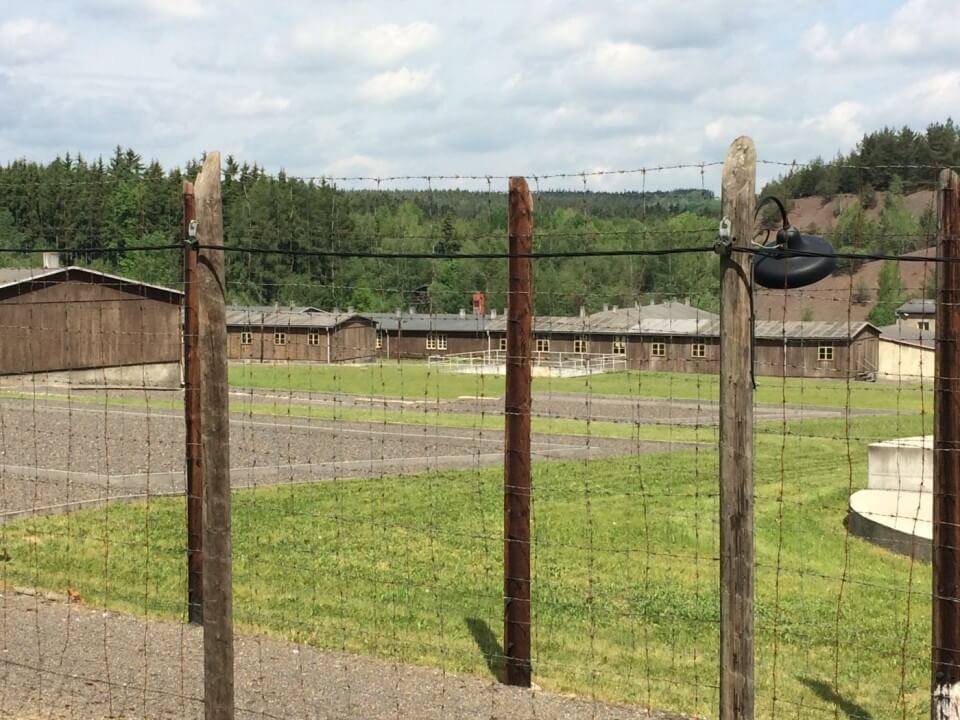
One of the buildings is original — the rest are reconstructions. It began as a camp for German prisoners of war, but shortly after the 1948 communist coup was turned into a labor camp.
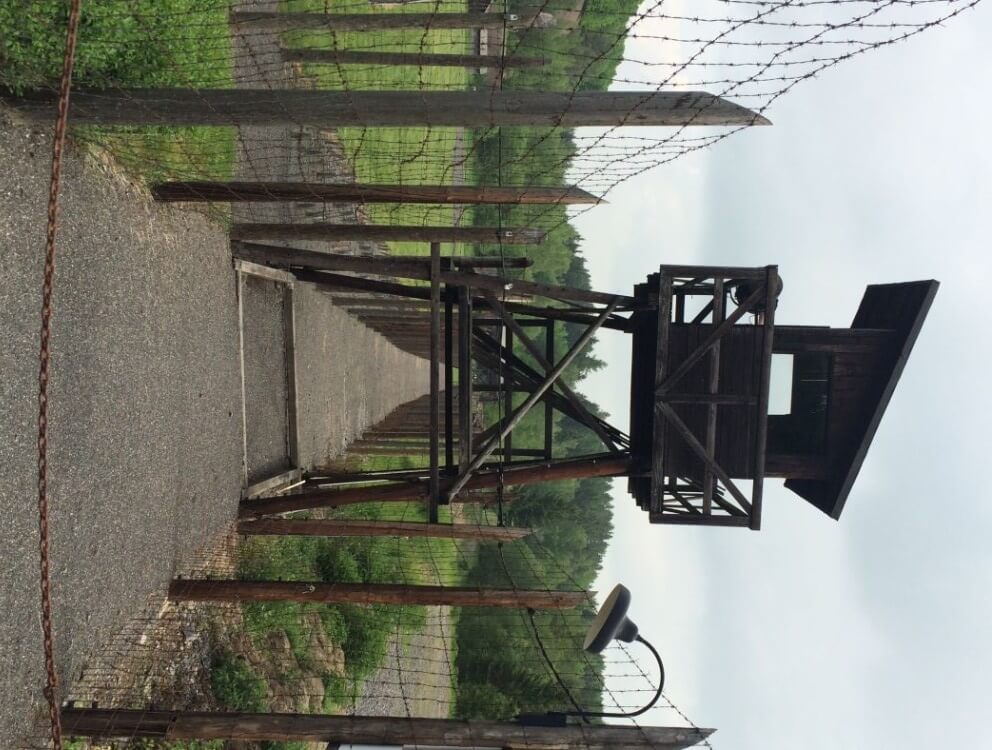
It was populated by a mixture of ordinary criminals and political prisoners (the priests, of course, fell into this latter category). Political prisoners were also subjected to a solitary confinement cell, a kind of underground bunker. It remains much as it was in the 1950s:
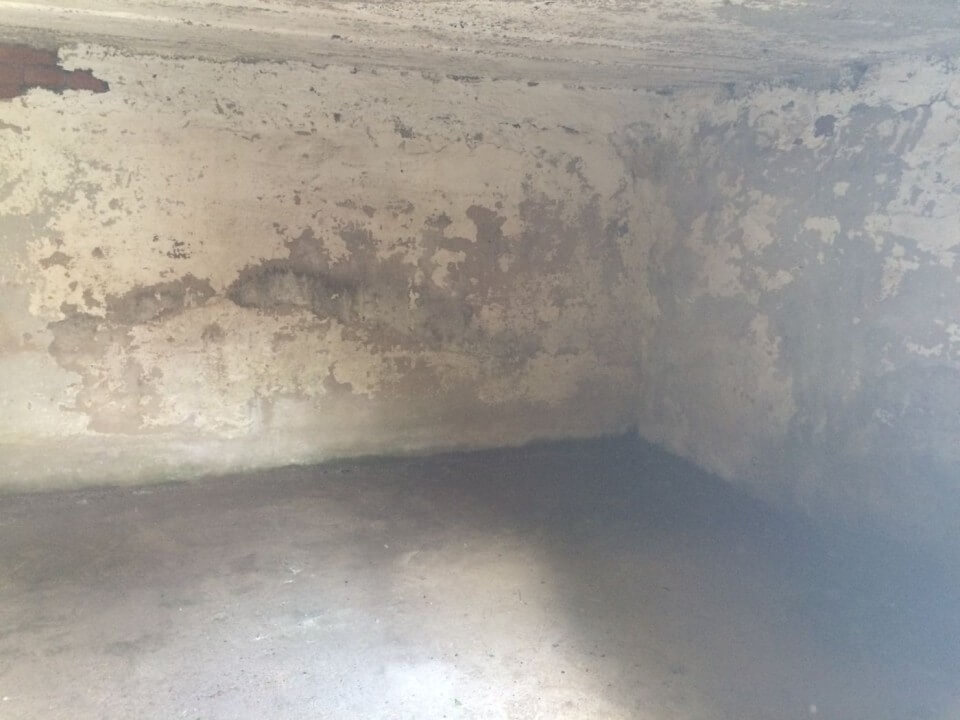
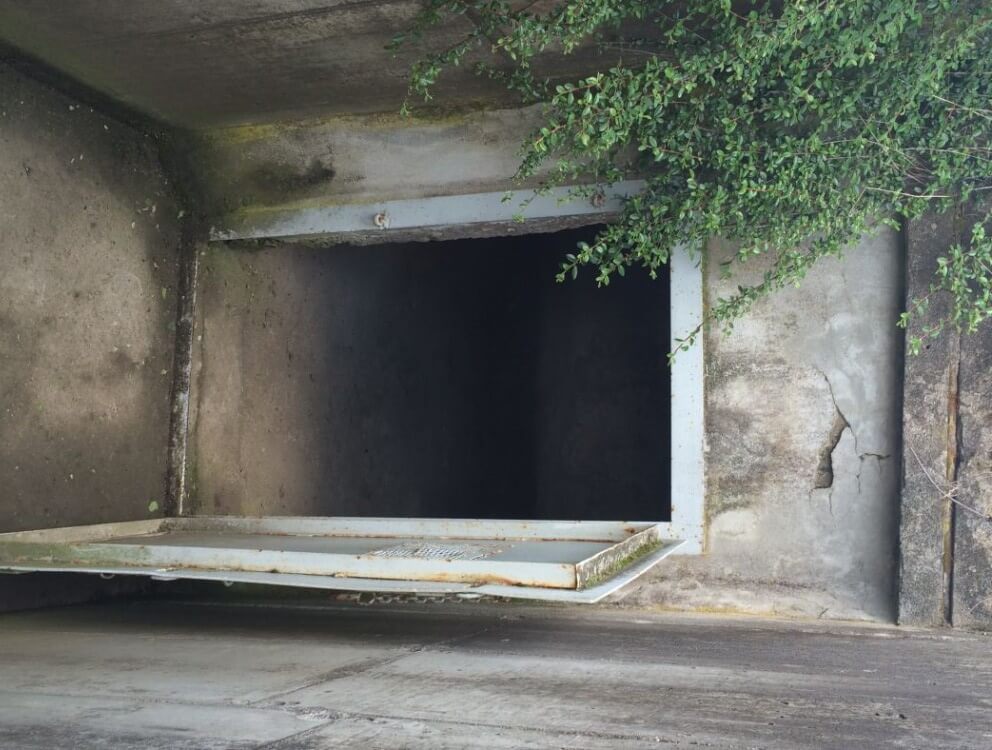
At its height, Vojna had between 1400 and 1600 prisoners. The majority of the prisoners survived, but returned home with major health problems. As in the Soviet gulag, work requirements were higher for political prisoners; food rations and other supplies were allotted in accordance with the fulfillment of these norms.
Re-education was also a prominent feature of camp life. Interestingly, this seems to distinguish the Czech camps from the Soviet ones, making them more like the Chinese model under Mao. In Solzhenitsyn’s account, your mind was more or less left alone by camp authorities. On this point one should read his moving chapter in volume two of The Gulag Archipelago called “The Ascent.” Here, he says one of the distinguishing features of camp life was time to think (without the assault of empty ideological slogans, meetings, etc.)! Below you can see the rooms in the reeducation center at Vojna:
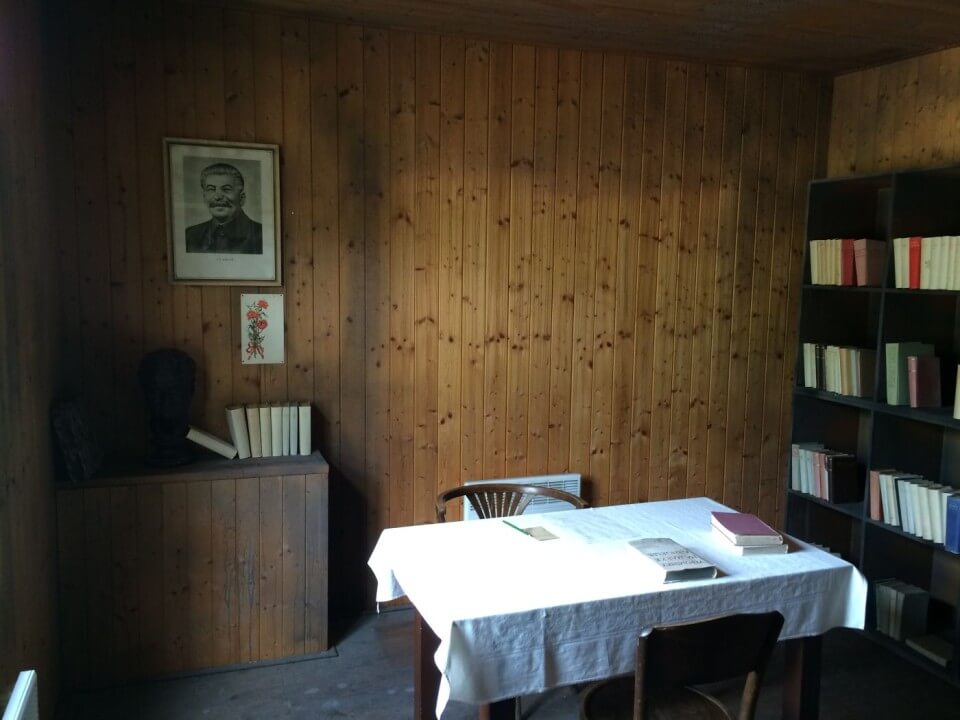
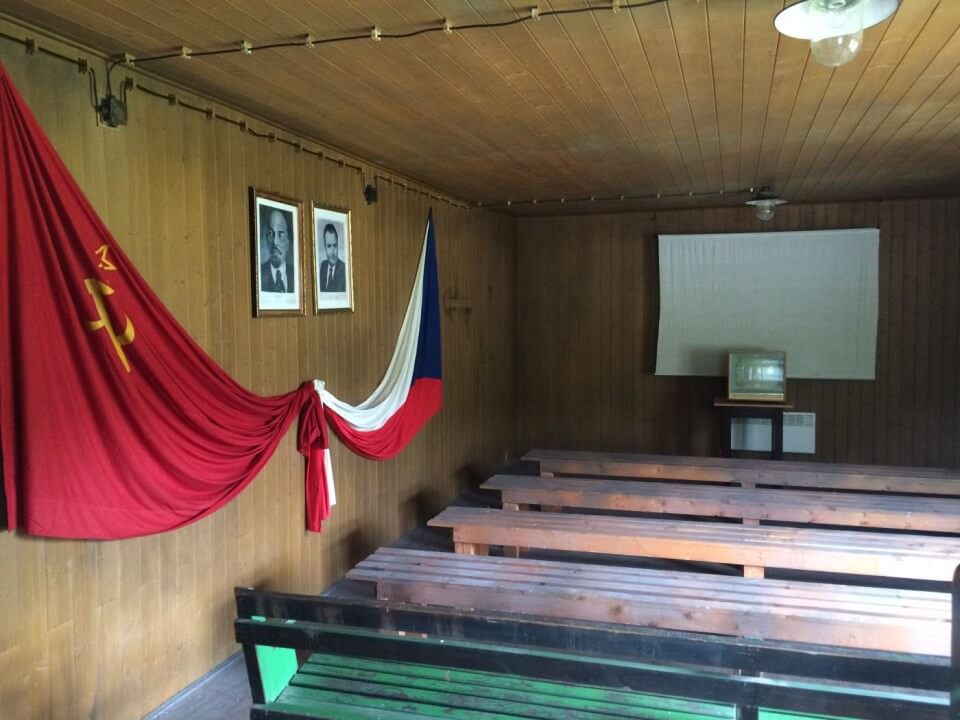
There were more mining camps near Jáchymov, and these, for a brief time, were administered directly by the Soviets. The uranium extracted from the Jáchymov camps was used in the making of the first Soviet atomic bomb. Priests like Father Josef Zvěřina spent much of the 1950s in these camps, but were released around 1960 during the “thaw” after Khrushchev’s secret speech. Some priests even regained their state license to preach. But this was short-lived. They lost their licenses again following the Soviet invasion of 1968.
Nonetheless, priests such as Zvěřina led extremely busy, active, and clandestine lives by extending their ministries — again, illegally — beyond the walls of the church. Any religious activity outside church walls, by someone with or without a state license, would be considered (to paraphrase) “obstructing state supervision of religion.” Some priests such as Zvěřina would become Charter 77 signatories and were well-known to the Czechoslovak secret police, or StB. There was a limit to how much these high-profile, politically active priests could do to perform their ministries. And the Czechoslovak state put strict limits on how many new priests could be ordained in the seminary in Litoměřice, northwest of Prague. This seminary was widely known to be infiltrated by StB agents. For a long time, only 11 of the 13 bishoprics in the Czech lands were filled. This situation improved in the early 1970s when the Vatican, with its own policy of Ostpolitik, struck a deal with the state. The communists allowed four more bishops to be seated, but two were chosen by them. They were members of a state-sponsored clerical organization called Pacem in Terris, which the communists used to control the church.
This dire situation led some young men to seek underground theological training with the assistance of native, unofficial priests like Zvěřina as well as from Catholics in other countries — especially Poland and East Germany. Many of these young men would go on to become clandestinely-ordained in places like Erfurt, Dresden, and Kraków (the future John Paul II ordained a number of these men when he was the archbishop there). These men continued with their day jobs but devoted themselves utterly to their vocations. The state certainly could not know of their ordinations, and they kept their identity secret from most people. In many cases, members of their immediate families were unaware they were priests. A mother of a Dominican priest I met only found out about her son’s vocation after 1989 — and he lived with her throughout the 1980s! There is a striking portrait of a priest of this sort in Roger Scruton’s novel, Notes from Underground (I reviewed it here).
And here is the website of Tomáš Halík — he became quite prominent after 1989.
In Part III, I will discuss another category of underground priests.
Published in General



What has happened since? I was told yesterday by a recently arrived Polish catholic that Poland becomes more secular by the day?
Heh. I mentioned Scruton in a comment last night, rewatched Why Beauty Matters (because it does), and here he is again.
Thanks Flagg. I love these posts.
I don’t know anything about the state of the church in Poland. Czech Republic is a much more secular country than Poland (then and now).
Went back and read your first post – very interesting history, thanks Flagg. The tenacity of these priests is wonderful and humbling to realize, such devotion. They knew their people truly needed them – bless them all.
I pray in admiration of these priests- and the believers who, after all, were the point of the priests’ ministry.
What is their position on baking gay-themed cakes?
Thanks. It makes me wonder how ordinations can continue when bishops, presumably easier for tyrants to locate, are imprisoned or executed. Priests can only be raised to bishops by the pope, which would be difficult when the pope has little access to the underground church.
I will deal with this in my next post. My understanding is that the church occasionally gives bishops special faculties to ordain other bishops. This happened in Mexico in the 1920s and then in Czechoslovakia under communism. Bishops, in the latter case, were instructed to ordain a secret or hidden bishop in anticipation of bishops being sent to labor camps or executed. This story is complicated and fascinating. How about that for a teaser…
These posts are much appreciated; thanks.
Do you happen to know who named this camp War? The earlier ones holding the German POWs, or the later communists?
No, but I will ask.
Thanks so much for your two essays on the church in Czechoslovakia under the communists. They’re fascinating.
Allow me to add a personal anecdote: In 1965, while a graduate student in Paris, I signed up for a Christmas-holiday student tour that would take us to Prague for a few days including Christmas, and then to Budapest for a few days including New Year’s Eve. Someone I knew in Paris knew someone in Prague, and suggested that I get in touch. I did, and this very kind man and his wife — they were probably in their forties or early fifties — invited me to join them for Christmas Eve supper at their apartment.
After dinner they said they were going to Midnight Mass, and asked if I would like to join them. I replied that I wasn’t Catholic, but they said to come anyway just for the experience.
It was extraordinary. I simply cannot recall what church we were at, but it was packed with people. (It was also freezing.) Every one of them was taking a huge risk just in showing up. No one seemed to care. It was a beautiful mass, and when it ended everyone seemed happy, joyous — and not the slightest bit concerned. My guess is that the Czech security police weren’t stupid….they knew better than to interfere or cause trouble on Christmas Eve.
Leaving the church and walking back with my new friends to their apartment — walking pass huge posters of Lenin, Marx, and Brezhnev, on Christmas Eve in Prague — was one of those experiences I’ll never forget.
Great story, Mr. Meyer!
That’s a great story. ’65 would have been good timing, comparatively speaking. During these few years through ’68 the censorship regime was relaxed (decent plays were performed and interesting books written and published–e.g., Kundera’s The Joke) and it was also easier to get a travel permit. Many priests who had been imprisoned in the 50s were let out of jail and many others like them. Some who had been put on trial–the show trials of the early 50s(like those associated with Slansky) were “rehabilitated.” This probably at least partly accounts for the mood and atmosphere you are describing. And no doubt the StB was watching! Thanks for this.
And two years after the mildly subversive film, When the Cat Comes, was released. It somehow found its way into a collection of Russian films, which is how I came to learn of it and watch it.
So this is a Czech film? And when did you see it?
Yes, Czech: Až přijde kocour. I first watched it a few years ago. I see that it’s currently on YouTube, with Russian subtitles: https://youtu.be/hEZS2XFW-4w . English subtitles can be found on the internet.
Fascinating! Thank you.
It’s hard to believe that in 2016 Christians and clergy still face these threats. Many don’t realize (including me until I watched the documentary with Pope John Paul II called Witness to Hope), that clergy have been risking their lives to bring faith to the masses for a long time. I didn’t even know much about Poland – my grandparents fled, the Ukraine, Poland and Russia. It’s not taught really anymore.
It should be. We face many of the same challenges with the rise of political extremist groups,the rise in antisemitism, and much backlash against Christians. They risked everything – we also have a responsibility, to take nothing for granted and defend the faith. Thank you for your posts and pictures!